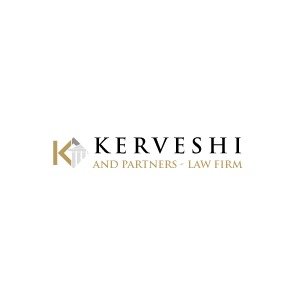Best Defamation Lawyers in Pristina
Share your needs with us, get contacted by law firms.
Free. Takes 2 min.
List of the best lawyers in Pristina, Kosovo
About Defamation Law in Pristina, Kosovo
Defamation laws in Pristina, Kosovo, are grounded on the principle of protecting the dignity and reputation of individuals against unjustified insults, slanders, or false allegations. The law recognizes both slander and libel - spoken and written defamation, respectively. However, determining defamation can be complicated since it often collides with the principle of freedom of speech, making it crucial to understand the subtleties of local legislation.
Why You May Need a Lawyer
Engaging a lawyer becomes necessary when your character or reputation has been harmed by false accusations, or if you've been accused of making false derogatory remarks about someone publicly. Lawyers can provide necessary legal expertise in navigating the complexities surrounding the laws of defamation, including gathering evidence, evaluating its credibility, and presenting it effectively in the court. They can also advise on possible defenses, such as truth, fair comment, and statement of privilege.
Local Laws Overview
Defamation is criminalized in Kosovo under articles 239 and 240 of the Criminal Code, covering "Insult" and "Defamation" respectively. These laws state that anyone who inflicts harm upon the honor of another person through accusations could be punishable under the code. However, the law also accommodates defenses. Importantly, the law excludes public figures from particular protection, allowing for wide freedoms in socio-political critique.
Frequently Asked Questions
What constitutes defamation in Pristina, Kosovo?
Defamation occurs when a false statement is made about an individual, which injures his/her reputation. Both spoken (slander) and written (libel) statements can constitute defamation.
What are the possible defenses in defamation cases?
The common defenses include justification (truth), fair comment, and absolute privilege. Absolute privilege applies to statements made during judicial proceedings and in parliamentary debates.
What is the standard of proof for defamation?
The plaintiff must prove that the defendant made the defamatory statement, it refers to the plaintiff, was published, and has harmed the reputation of the plaintiff.
Can public figures sue for defamation?
Yes, however, public figures face more scrutiny and must also prove that the defamatory statement was made with actual malice - that is, with knowledge that it was false or with reckless disregard of whether it was false or not.
Are there any limitations with defamation cases?
Yes, defamation cases need to be filed within a particular period, known as a statute of limitations, from the day the defamatory statement was made.
Additional Resources
For additional information, visit the Kosovo Judicial Council website or the Kosovo Law Center. The Press Council of Kosovo can provide assistance related to media-related defamation. For legal advice, a variety of law firms specializing in defamation law are present in Pristina.
Next Steps
If you believe you have been defamed or accused of defamation, it is advisable to contact a legal professional specializing in defamation law. Document all instances of the defamation and gather as many details as possible - this information can be crucial for your case. Never disregard the importance of professional advice in such cases, as defamation law can be complicated and extensive.
Lawzana helps you find the best lawyers and law firms in Pristina through a curated and pre-screened list of qualified legal professionals. Our platform offers rankings and detailed profiles of attorneys and law firms, allowing you to compare based on practice areas, including Defamation, experience, and client feedback.
Each profile includes a description of the firm's areas of practice, client reviews, team members and partners, year of establishment, spoken languages, office locations, contact information, social media presence, and any published articles or resources. Most firms on our platform speak English and are experienced in both local and international legal matters.
Get a quote from top-rated law firms in Pristina, Kosovo — quickly, securely, and without unnecessary hassle.
Disclaimer:
The information provided on this page is for general informational purposes only and does not constitute legal advice. While we strive to ensure the accuracy and relevance of the content, legal information may change over time, and interpretations of the law can vary. You should always consult with a qualified legal professional for advice specific to your situation.
We disclaim all liability for actions taken or not taken based on the content of this page. If you believe any information is incorrect or outdated, please contact us, and we will review and update it where appropriate.








